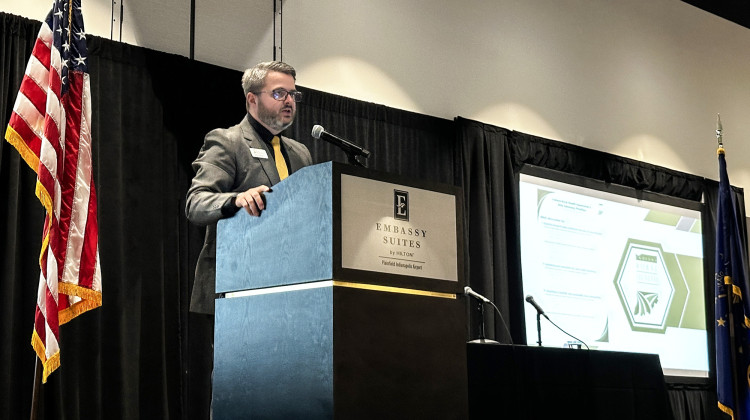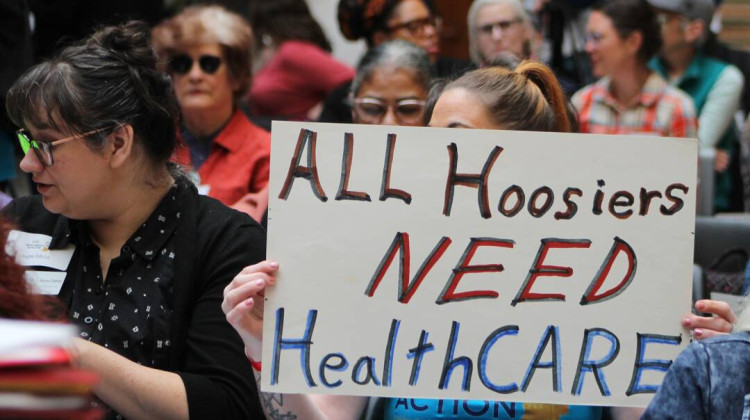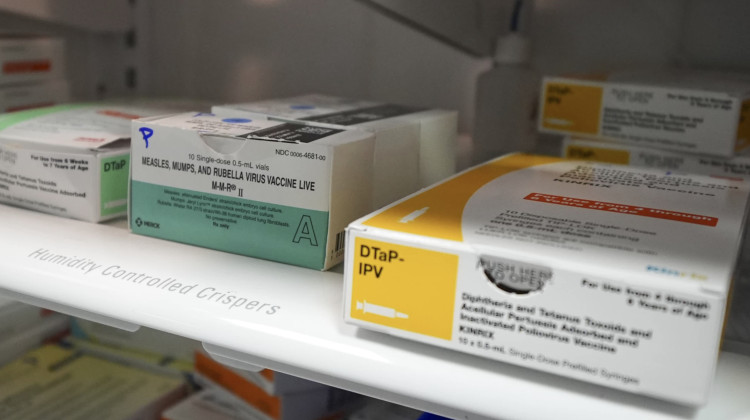
Dan Hardesty, director of government affairs for the association, said one of the main concerns he continues to hear from the organization's members is about Medicaid reimbursement rates.
Abigail Ruhman/IPB NewsRural health leaders and advocates in Indiana say the Medicaid reimbursement rate is way behind where it needs to be. Addressing those rates is among the Indiana Rural Health Association’s advocacy priorities presented ahead of the 2025 legislative session.
The Rural Health Association’s priorities include topics the organization has advocated for before: expanding residency programs in rural areas, improving telehealth practices and increasing the cigarette tax.
Dan Hardesty, director of government affairs for the association, said one of the main concerns he hears from members is about Medicaid reimbursement rates.
“When it comes to rural communities, who serve a disproportionate share of those on Medicare and Medicaid, when you're relying on that reimbursement — it's nowhere near where it could be,” Hardesty said.
Hardesty said the organization is working with the Indiana Hospital Association to ensure the reimbursement rate increases.
The Rural Health Association's priorities also highlight a number of services that need more support in rural areas. These include the lack of residency programs, challenges for emergency medical services, and the shortage of labor and delivery providers throughout the state.
“Twenty-seven of Indiana's 92 counties do not have a labor and delivery provider,” Hardesty said. “We're talking about a third of the counties in the state of Indiana. Also, we do have three counties that are served by family physicians.”
READ MORE: HIV advocates, organizations talk legislative solutions at first advocacy summit
Join the conversation and sign up for the Indiana Two-Way. Text "Indiana" to 765-275-1120. Your comments and questions in response to our weekly text help us find the answers you need on statewide issues, including our project Civically, Indiana.
His organization also wants lawmakers to address other gaps in access by listening to the Indiana Behavioral Health Commission’s recommendations on the state’s crisis response system.
“They've already been doing great work to expand kind of the crisis intervention framework that's in Indiana, but also the expansion that they want to do with these recommendations is specifically going to expand into rural communities,” Hardesty said.
The Rural Health Association's priorities also include continued support for Indiana’s historic public health funding and improved telehealth practices. Indiana’s 2025 legislative session begins in January.
The National Rural Health Association also presented its policy priorities. A spokesperson said the organization’s priorities include modern several rural hospital funding programs, maintain the premium tax credit in the Affordable Care Act and oppose site neutrality requirements for rural hospitals.
Abigail is our health reporter. Contact them at aruhman@wboi.org.
 DONATE
DONATE






 Support WFYI. We can't do it without you.
Support WFYI. We can't do it without you.